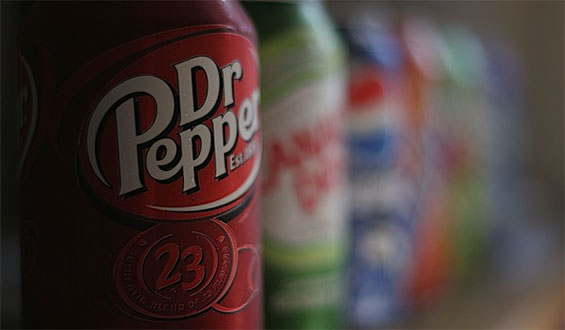
A new study published online in the journal Pediatrics has found that health warning labels on sugary drinks may increase the possibility that parents will shy away from buying the beverages for their kids. The study included 2,381 parents who completed online surveys asking questions about the healthiness of 20 selected drinks.
Of the drinks, 12 were considered sugar-sweetened because they had 75 calories or more from added sugars. The types of drinks shown were sodas and juice beverages. The other eight drinks were diet sodas, water, and juices, said Carina Storrs of CNN.
A portion of the parents viewed images of sugary drinks that had health warning labels attached to the front of the bottle. The wording on the labels was based on language that a proposed California bill would require to be on labels.
“Drinking beverages with added sugar(s) contributes to obesity, diabetes and tooth decay.”
Other parents saw a label with calorie amounts on the front of the bottle that US beverage companies display on cans and bottles of their own accord. Another group saw images of drinks with no calorie or health warning labels.
Forty percent of the parents who saw health warning labels on the cans or bottles went with the sugary drink. And 53% who saw a calorie label, along with 60% who saw no labels, chose the sweet drink.
“We are trying to make a link between the high sugar content and the calories and the actual downstream outcomes [of sugary drinks]. You can say that something has 18 or 24 grams of sugar, but most people have no clue what a gram is,” said David Hammond, professor in the school of public health at the University of Waterloo in Ontario.
Hammond, who led the study, said the health warning labels add an extra level of protection that parents can readily understand. Both California and New York are considering that noticeable health warning labels be required on sugar-sweetened beverages. San Francisco has already passed a law, not yet in effect, to require ads for sugary drinks to include posted warnings.
The parents involved in the survey had children ages 6 to 11. Hammond explained that sugar consumption could have negative effects on children’s health and nutrition, which can also train kids’ palates to want sweets from an early age.
Parents were dissuaded by the health warning labels to select a less sugary option on the survey, but more importantly, parents said they would be less likely to buy the sugary drinks in the future.
Parents who observed the warning labels were also more likely than other parents to admit that sweet drinks were unhealthy, and that the drinks would not help their child feel more energized or focused. They also stated that the sweetened drinks increased the risks of diabetes, weight gain, tooth decay, and heart disease.
The labels, similar to the warnings on cigarette packs, will be useful for some parents, but not all. Christina Roberto, lead researcher and assistant professor of medical ethics and health policy at the University of Pennsylvania Perelman School of Medicine, said the health warning labels seemed to make more of a difference than the calorie labels, reports WebMD’s Kathleen Doheny.
After the study, parents were asked if they would support putting warning labels on sugary beverages. The researchers found that 73% were in favor, and less than 6% were opposed to adding the directives, writes Steve Smith of Medical Daily. Also, the majority of the participants stated that the warning labels would change their opinions about the healthfulness of the sweetened drinks and would cause them to buy fewer of the beverages for their children.
One downside to the addition of the warning labels, says Emma Carter of the Utah People’s Post, is that teenagers may see the warning and want to drink more sugar-sweetened drinks as an act of rebellion.




